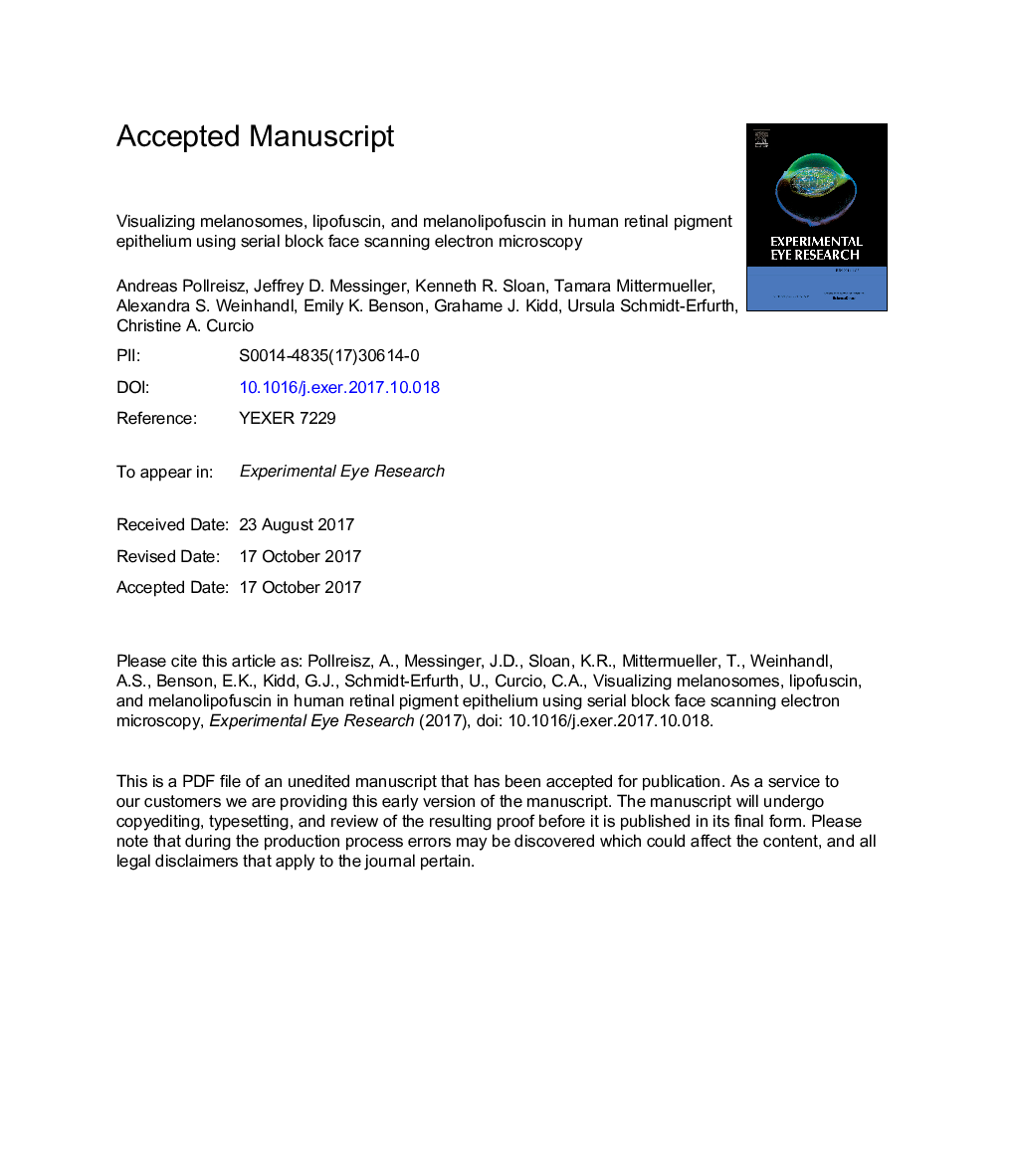| Article ID | Journal | Published Year | Pages | File Type |
|---|---|---|---|---|
| 8792093 | Experimental Eye Research | 2018 | 36 Pages |
Abstract
The number of granules per RPE cell body in 16M, 32F, 76F, and 84M eyes, respectively, was 465 ± 127 (mean ± SD), 305 ± 92, 79 ± 40, and 333 ± 134 for L; 13 ± 9; 6 ± 7, 131 ± 55, and 184 ± 66 for ML; and 29 ± 19, 24 ± 12, 12 ± 7, and 7 ± 3 for M. Granule types were spatially organized, with M near apical processes. The effective radius, a sphere of decreased probability for granule occurrence, was 1 μm for L, ML, and M combined. In conclusion, SBFEM reveals that adult human RPE has hundreds of L, LF, and M and that granule spacing is regulated by granule size alone. When obtained for a larger sample, this information will enable hypothesis testing about organelle turnover and regulation in health, aging, and disease, and elucidate how RPE-specific signals are generated in clinical optical coherence tomography and autofluorescence imaging.
Keywords
Related Topics
Life Sciences
Immunology and Microbiology
Immunology and Microbiology (General)
Authors
Andreas Pollreisz, Jeffrey D. Messinger, Kenneth R. Sloan, Tamara J. Mittermueller, Alexandra S. Weinhandl, Emily K. Benson, Grahame J. Kidd, Ursula Schmidt-Erfurth, Christine A. Curcio,
